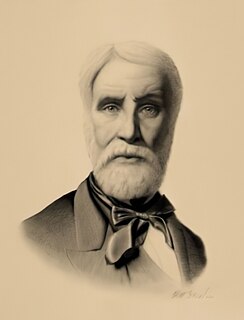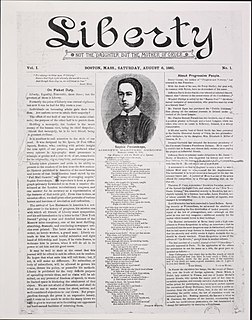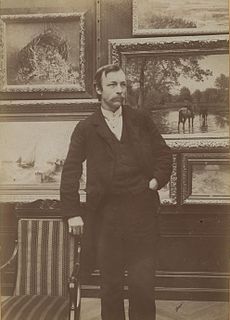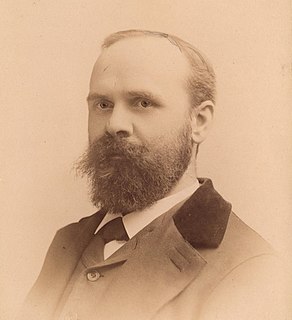Individualist anarchism is the branch of anarchism that emphasizes the individual and their will over external determinants such as groups, society, traditions and ideological systems. Although usually contrasted to social anarchism, both individualist and social anarchism have influenced each other. Mutualism, an economic theory particularly influential within individualist anarchism whose pursued liberty has been called the synthesis of communism and property, has been considered sometimes part of individualist anarchism and other times part of social anarchism. Many anarcho-communists regard themselves as radical individualists, seeing anarcho-communism as the best social system for the realization of individual freedom. Economically, while European individualist anarchists are pluralists who advocate anarchism without adjectives and synthesis anarchism, ranging from anarcho-communist to mutualist economic types, most American individualist anarchists advocate mutualism, a libertarian socialist form of market socialism, or a free-market socialist form of classical economics. Individualist anarchists are opposed to property that gives privilege and is exploitative, seeking to "destroy the tyranny of capital – that is, of property" by mutual credit.
Individualism is the moral stance, political philosophy, ideology and social outlook that emphasizes the intrinsic worth of the individual. Individualists promote the exercise of one's goals and desires and to value independence and self-reliance and advocate that interests of the individual should achieve precedence over the state or a social group while opposing external interference upon one's own interests by society or institutions such as the government. Individualism is often defined in contrast to totalitarianism, collectivism and more corporate social forms.

Auberon Edward William Molyneux Herbert was a British writer, theorist, philosopher, and 19th century individualist. He was a son of the 3rd Earl of Carnarvon. He was Liberal Member of Parliament for the two-member constituency of Nottingham from 1870 to 1874.

Free-market anarchism, or market anarchism, also known as free-market anti-capitalism and free-market socialism, is the branch of anarchism that advocates a free-market economic system based on voluntary interactions without the involvement of the state. A form of individualist anarchism, and market socialism, it is based on the economic theories of mutualism and individualist anarchism in the United States.
The nature of capitalism is criticized by anarchists, who reject hierarchy and advocate stateless societies based on non-hierarchical voluntary associations. Anarchism is generally defined as the libertarian philosophy which holds the state to be undesirable, unnecessary and harmful as well as opposing authoritarianism, illegitimate authority and hierarchical organization in the conduct of human relations. Capitalism is generally considered by scholars to be an economic system that includes private ownership of the means of production, creation of goods or services for profit or income, the accumulation of capital, competitive markets, voluntary exchange and wage labor which has generally been opposed by anarchists historically. Since capitalism is variously defined by sources and there is no general consensus among scholars on the definition nor on how the term should be used as a historical category, the designation is applied to a variety of historical cases, varying in time, geography, politics and culture.
Anarchism in the United States began in the mid-19th century and started to grow in influence as it entered the American labor movements, growing an anarcho-communist current as well as gaining notoriety for violent propaganda of the deed and campaigning for diverse social reforms in the early 20th century. By around the start of the 20th century, the heyday of individualist anarchism had passed and anarcho-communism and other social anarchist currents emerged as the dominant anarchist tendency.

Liberty was a 19th-century anarchist market socialist and libertarian socialist periodical published in the United States by Benjamin Tucker from August 1881 to April 1908.
Steven Tracy Byington was a noted intellectual, translator, and American individualist anarchist. He was born in Westford, Vermont, and later moved to Ballardvale section of Andover, Massachusetts. A one-time proponent of Georgist minarchism, he converted to individualist anarchism after associating with Benjamin Tucker. He was a firm believer in the promotion of individualist anarchism through education. He said "Anarchism has undertaken to change men's minds in one point by removing their faith in force". He began a "Letter Writing Corps" in 1894 which targeted specific individuals, including newspapers, to familiarize others with the philosophical doctrine. He is known for translating two important anarchist works into English from German: Max Stirner's The Ego and Its Own and Paul Eltzbacher's Anarchism; exponents of the anarchist philosophy.
Libertarianism is a political philosophy that upholds liberty as a core value. Libertarians seek to maximize autonomy and political freedom, and minimize the state; emphasizing free association, freedom of choice, individualism and voluntary association. Libertarians share a skepticism of authority and state power, but some libertarians diverge on the scope of their opposition to existing economic and political systems. Various schools of libertarian thought offer a range of views regarding the legitimate functions of state and private power, often calling for the restriction or dissolution of coercive social institutions. Different categorizations have been used to distinguish various forms of libertarianism. Scholars distinguish libertarian views on the nature of property and capital, usually along left–right or socialist–capitalist lines.

Clarence Lee Swartz (1868–1936) was an American individualist anarchist, whose best-known work, What is Mutualism? (1927) is a book explaining the economic system of mutualism.
Anarchism is generally defined as the political philosophy which holds the state to be undesirable, unnecessary and harmful as well as opposing authority and hierarchical organization in the conduct of human relations. Proponents of anarchism, known as anarchists, advocate stateless societies based on non-hierarchical voluntary associations. While anarchism holds the state to be undesirable, unnecessary and harmful, opposition to the state is not its central or sole definition. Anarchism can entail opposing authority or hierarchy in the conduct of all human relations.
Individualist anarchism in the United States was strongly influenced by Benjamin Tucker, Josiah Warren, Ralph Waldo Emerson, Lysander Spooner, Pierre-Joseph Proudhon, Max Stirner, Herbert Spencer and Henry David Thoreau. Other important individualist anarchists in the United States were Stephen Pearl Andrews, William Batchelder Greene, Ezra Heywood, M. E. Lazarus, John Beverley Robinson, James L. Walker, Joseph Labadie, Steven Byington and Laurance Labadie.
This article is a list of major figures in the theory of libertarianism, a philosophy asserting that individuals have a right to be free. Originally coined by French anarchist and libertarian communist Joseph Déjacque as an alternative synonymous to anarchism, American classical liberals appropriated the term in the 1950s for their philosophy which asserts that individuals have a right to acquire, keep and exchange their holdings and that the primary purpose of government is to protect these rights. As a result of this history, libertarians on this list may be either of the American-style free-market variety or of the European-style socialist variety.
The following outline is provided as an overview of and topical guide to anarchism, generally defined as the political philosophy which holds the state to be undesirable, unnecessary and harmful, or alternatively as opposing authority and hierarchical organization in the conduct of human relations. Proponents of anarchism, known as anarchists, advocate stateless societies or non-hierarchical voluntary associations.
Egoist anarchism or anarcho-egoism, often shortened as simply egoism, is a school of anarchist thought that originated in the philosophy of Max Stirner, a 19th-century existentialist philosopher whose "name appears with familiar regularity in historically orientated surveys of anarchist thought as one of the earliest and best known exponents of individualist anarchism".
Individualist anarchism in Europe proceeded from the roots laid by William Godwin and soon expanded and diversified through Europe, incorporating influences from individualist anarchism in the United States. Individualist anarchism is a tradition of thought within the anarchist movement that emphasize the individual and his or her will over external determinants such as groups, society, traditions, and ideological systems. While most American individualist anarchists advocate mutualism, a libertarian socialist form of market socialism, or a free-market socialist form of classical economics, European individualist anarchists are pluralists who advocate anarchism without adjectives and synthesis anarchism, ranging from anarcho-communist to mutualist economic types.
Anarchy is a society being freely constituted without authorities or a governing body. It may also refer to a society or group of people that entirely rejects a set hierarchy. Anarchy was first used in English in 1539, meaning "an absence of government". Pierre-Joseph Proudhon adopted anarchy and anarchist in his 1840 treatise What Is Property? to refer to anarchism, a new political philosophy and social movement that advocates stateless societies based on free and voluntary associations. Anarchists seek a system based on the abolition of all coercive hierarchy, in particular the state, and many advocate for the creation of a system of direct democracy and worker cooperatives.
Social anarchism is the branch of anarchism that sees individual freedom as interrelated with mutual aid. Social anarchist thought emphasizes community and social equality as complementary to autonomy and personal freedom. It attempts to accomplish this balance through freedom of speech, which is maintained in a decentralized federalism, with freedom of interaction in thought and subsidiarity. Subsidiarity is best defined as "that one should not withdraw from individuals and commit to the community what they can accomplish by their own enterprise and industry" and that "[f]or every social activity ought of its very nature to furnish help to the members of the body social, and never destroy and absorb them", or the slogan "Do not take tools out of people's hands".

Benjamin Ricketson Tucker was an American anarchist and free market libertarian socialist. A 19th-century proponent of individualist anarchism which he called "unterrified Jeffersonianism", Tucker was the editor and publisher of the American individualist anarchist periodical Liberty (1881–1908) as well as a member of the socialist First International.
Anarchism is the political philosophy which holds ruling classes and the state to be undesirable, unnecessary and harmful, or alternatively as opposing authority and hierarchical organization in the conduct of human relations.





